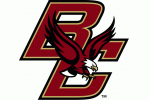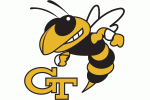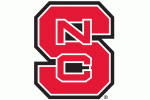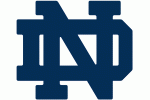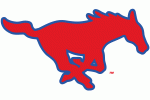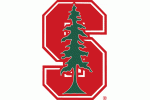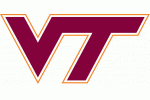The gloves are off in the rematch.

On Monday, Louisville received its long-anticipated Notice of Allegations from the NCAA pertaining to its involvement in the FBI’s probe into college basketball from 2017. You can read the full notice of allegations here.
If you don’t want to spend several hours doing that and only want the key nuts and bolts from Monday’s happenings, read on.
Here’s what you need to know about the setup for Louisville v. NCAA II.
Round Two Will be a Fight
If there was a consistent theme on Monday from the U of L powers that be who released written or verbal statements it was “we’ll accept punishment for actual wrongdoing, but if we disagree with an NCAA assertion, we’re going to fight like hell.” It was a point accentuated by both Vince Tyra and Neeli Bendapudi during their teleconference with the media — Bendapudi said “we will not hesitate to push back, I repeat, we will not hesitate to push back” during her opening statement — as well as by Chris Mack in his released written statement.
In hindsight, it has certainly appeared that U of L’s biggest mistake in bout one with the NCAA was being overly cooperative and accommodating. It’s sad, but the way the NCAA has handled every infractions case over the last five years has made the correct plan of attack perfectly clear: Don’t investigate yourself, don’t cooperate, treat the entire infractions process as adversarial. When members of the NCAA board admit publicly that this seems to be the message with the infractions committee’s recent rulings, it’s probably time to stop playing nice.
On the NCAA/Mizzou call with David Roberts, the chief hearing officer for the panel, I asked if schools are now being encouraged not to cooperate or tell the truth. Roberts replied: "You can certainly make that argument."
— Nicole Auerbach (@NicoleAuerbach) January 31, 2019
I don’t think the comments made by Tyra, Bendapudi and Mack were simply fan service. There will be no playing nice in round two.
The Violations
The NCAA is alleging four total violations committed by the Louisville men’s basketball program, one level one violation (the most serious) and three level two violations.
While being alleged to have committed a level one violation while on probation is certainly not great, it’s still not nearly as bad as the doomsday scenario that has been out there over the last three (or five hundred) years. For comparison’s sake, in its Notice of Allegations, Kansas was hit with five level one violations. Louisville also was not hit with a “lack of institutional control” charge, a fact Tyra described as “significant” when it was brought up during the media teleconference.
The level two violations — Jordan Fair drove Brad Augustine to a bar, U of L should have been more suspicious of Brian Bowen’s commitment because college basketball is gross, and Rick Pitino should have known something was wrong because he knew DePaul was trying to pay to get Bowen (seriously, those are pretty much the violations) — aren’t going to torpedo Louisville, so let’s focus on the level one accusation ...
“Boosters”
We already mentioned the biggest difference between Louisville’s NOA and the one Kansas received months ago — one level one violation versus five — but there is one glaring similarity that will be near the center of both fights.
In the NOAs to both programs, the NCAA has attempted to make the case that employees of corporate partners — in this case adidas — are technically “boosters” for college athletic programs. That’s never been argued by the NCAA (or anyone) before, and it figures to be a hot point of contention in both of these cases.
In its initial response, Kansas served up a blistering retort to the NCAA’s booster allegation.
The blistering response also sought to distance the university from its relationship with former Adidas consultant T.J. Gassnola, who the NCAA alleges was acting as a booster to the university when he made payments to family members and guardians of athletes to have them attend KU.
“The evidence however, based mainly on trial testimony, fails utterly to support a conclusion that Adidas or any Adidas employees acted as representatives of the University during the period in question,” the response reads. “Individuals formally associated with Adidas acted in their own interests when they gave money to the family and guardians of student-athletes.”
The response also argues that the NCAA’s contention that employees of a corporate sponsor can be boosters would have “far reaching ramifications” among NCAA member universities and would make many college athletes ineligible because they participate in nonscholastic events and teams that are sponsored by athletic apparel companies, such as Nike and Adidas.
It also bears mentioning that these same individuals that the NCAA is claiming are boosters for Louisville, Kansas, etc. were convicted in a federal court of defrauding Louisville, Kansas, etc.
This whole thing is so, so dumb, and I would say the exact same thing if my favorite school wasn’t caught in the crosshairs of it.
The Johnson-Bowen Payment
With all due respect to Jordan Fair’s presence in a Las Vegas hotel room, I don’t think there’s any question that the most crucial allegation in this entire case is the allegation that Kenny Johnson made a $1,300 cash payment to the father of Brian Bowen while Bowen was enrolled at Louisville, Johnson was a Cardinal assistant, and the program was already on probation.
The elder Bowen testified in federal court last year that Johnson made the payment on Aug. 23, 2017 after Bowen had told him that he needed help paying for a room at the Galt House, where the family was staying. Johnson, who is currently an assistant coach at La Salle, has denied Bowen Sr.’s claim.
With this being a he said/he said deal, expect Louisville to lean heavily on the fact that Bowen Sr. wasn’t exactly a consistently truthful witness during that federal case.
Re: any specific offer from Oregon, Bowen Sr. said “I don’t recall that.” https://t.co/Q0BKM5laUk
— Jeff Borzello (@jeffborzello) October 4, 2018
What continues to be interesting is how the NCAA is deciding what they like and don't like about Gassnola's testimony and somehow deciding part of it is truthful and part of it is lying. https://t.co/D3JStJCazi
— Brian Snow (@BSnow247) May 4, 2020
Bowen Sr. initially lied to the FBI in September of 2017. Did it to avoid getting his son in trouble.
— Matt Norlander (@MattNorlander) October 9, 2018
Struck a deal in January of 2018 to be a government witness, avoiding prosecution in the process.
“I still think my son is a victim, and I always will,” Bowen Sr. said.
Because he is currently an employee under the NCAA’s umbrella, Johnson can be compelled to meet with the NCAA to discuss the particulars here. La Salle didn’t have a whole lot to say when initially reached for comment on Monday.
I've received this statement from La Salle concerning former Louisville assistant Kenny Johnson, who is now an assistant coach for the Explorers: "We take matters like this very seriously and will abstain from commenting any further at this time." pic.twitter.com/ESVy3cA9UW
— Tyler Greever (@Tyler_Greever) May 4, 2020
But if Johnson said initially that this never happened, it’s a fairly safe assumption that — with his career hanging in the balance — he’ll stick to his story.
Of course with the NCAA, the fact that there’s no tangible evidence outside of the word of a man who has consistently appeared incapable of keeping his stories straight might not matter at all. It’s not difficult to envision a scenario where the NCAA looks at all the evidence and official statements and comes to a conclusion along the lines of “Bowen said this on the stand, we believe him, and we’re punishing you as though this happened” ... because they’re the NCAA.
Which is why ...
Louisville Could Try to Take This to the Complex Case Unit
Tyra didn’t go any further than saying that he was “intrigued” by the prospect of taking this case to the NCAA’s new Independent Accountability Resolution Process, which was designed to hear cases in which the NCAA and and the program it has accused of wrongdoing find themselves particularly at odds.
In cases where it’s utilized, the IARP essentially takes the place of the NCAA’s Committee on Infractions. In an IARP case, five of the 15 committee members are selected to hear the case in question. These committee members are mostly independent lawyers or former judges.
They are:
Jodi Balsam, an associate professor at Brooklyn Law School
David Benck, a member of the American Arbitration Association board of directors
Jeffrey Benz, a Los Angeles- and London-based lawyer who works for JAMS, a private provider of mediation and arbitration
Mary Braza, a Wisconsin-based attorney who specializes in sports legal issues• Bernetta Bush, a former circuit court judge, who also works for JAMS
Joan Cronan, athletic director emeritus at Tennessee
Javier Flores, an attorney with Manning Gross + Massenburg• Hugh Fraser, a former Canadian justice who now works for JAMS
Patricia Timmons Goodson, a retired judge on the North Carolina Supreme Court
Corey Jackson, a former Virginia Tech basketball player, NCAA compliance director and the executive vice president of Parkland Health and Hospital
Bruce Meyerson, a former university general counsel and partner of Bruce Meyerson PLLC
Tracy Porter, the former chair of the NFL Alumni Association and owner of Premiere Solutions
Michelle Pujals, the former vice president and assistant general counsel for the NBA, and now an attorney with Tautemo Consulting
Christina Guerola Sarchio, a former prosecutor and now partner with Dechert LLP
Dana Welch, an arbitrator and mediator with Welch ADR
Once a Notice of Allegations has been issued, the school in question, the NCAA’s vice president of enforcement, or the chair of the Committee on Infractions can recommend that it be kicked over to the IARP. If that happens, the NCAA then backs off until a decision has been made.
The process is fairly simple: Five of the 15 committee members are selected to hear the case, they hear both sides, they made a decision. The kicker? There is no appeal. Whatever the IARP decides is final.
Considering that Louisville successfully argued in its most recent appeal that the NCAA violated its own guidelines by not considering U of L’s self-punishment as a mitigating factor when it hammered the Cardinals in its final punishment and the NCAA’s response was “you are correct, but we’re still not changing anything,” I’d say the lack of an appeal process won’t be a huge deterrent for Tyra and company.
There are no guarantees, but I would say it’s more likely than not that this case ultimately makes its way to the IARP, which was created partially with the intent of punishing individual bad characters instead of entire institutions.
The only case currently being handled by the IARP is the one involving Memphis and James Wiseman.
No Self-Imposed Penalties This Time
Towards the end of the media session, Vince Tyra was asked by Rick Bozich about the potential of U of L self-imposing penalties as they did in 2016. Before he could answer, Dr. Bendapudi took the reins, saying: “I’ll take this one ... No.”
Tyra agreed and added, “I don’t think that’s an option.”
Another area where it’s safe to say the current powers that be have learned from now appear to be missteps of round one with the NCAA.
Tyra Downplays Death Penalty/2021 Postseason Ban Concerns
Asked straight up about the possibility that Louisville could be at risk for the death penalty, Tyra responded with “I don’t foresee that.” He also stated that, while there are no guarantees, he didn’t believe that U of L was at serious risk for being banned from the 2021 NCAA tournament. The rationale for that response seemed to be more about the length of time this whole process will take than the belief that Louisville won’t be hit with at least one postseason ban before this thing is over.
Louisville Has Hired Attorney Mike Glazier
U of L has hired veteran college sports attorney Mike Glazier to navigate it through this process, which is yet another sign that the university is preparing for a fight.
Glazier works for the firm that is perhaps most famous for representing North Carolina in its academic fraud case. The result of that, of course, was that the men’s basketball program walked away virtually unscathed.
In the past couple of years, Glazier has represented Missouri in its fight against the NCAA and has also been retained by NC State for its upcoming bout. The path that led him to this point may have actually been paved two decades ago in Louisville.
A new U of L athletic director named Tom Jurich hired Glazier to represent the school after it had been banned from the 1999 NCAA tournament due in large part to its status as a repeat offender. Thanks largely to Glazier’s discovery of a procedural error committed by the NCAA, the ban was overturned two months before the start of the Big Dance and the Cards were able to play.
One name that wasn’t mentioned at all on Monday and which doesn’t figure to be heard a whole lot throughout this entire process: Chuck Smrt.
No Show-Cause Likely for Pitino
While Louisville’s NOA did include possible show-cause orders for Kenny Johnson and Jordan Fair, it did not include one for Rick Pitino. Pitino, who is now the head coach at Iona, could receive “head coach restrictions” that have the potential to be as severe as being suspended for 50 percent of a season.
The NCAA did cite two “aggravating factors” when it comes to Pitino’s situation. They lean heavily on the fact that he didn’t properly keep tabs on his ops director in the past ... I don’t think we need to dive more deeply into that. They also emphasize that Pitino sent a text message to David Padgett in which mentions hearing that DePaul has been trying to pay an inordinate amount of money to land Brian Bowen. In the NCAA’s eyes, that shows that Pitino was aware of Bowen’s dirty recruitment and should have been aware that something was afoul when he committed to U of L.
Summary
This is going to be adversarial.
Louisville will hammer home the fact that it has a new president, a new athletic director, an entirely new men’s basketball staff and no real sign of anything related to the period of time when all this went down. It also figures to vehemently argue against the notion that the Adidas employees involved can be fairly categorized as U of L boosters. I would also assume U of L will play up the fact that the only “proof” of a payment from Kenny Johnson to Brian Bowen Sr. is the word of a man who has changed his story more times than Casey Anthony.
It’s not going to be fun and nobody has any idea how the hell it’s going to turn out.
Hopefully we can focus on the 2020-21 season with this serving as only a minor distraction.


